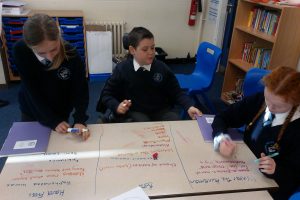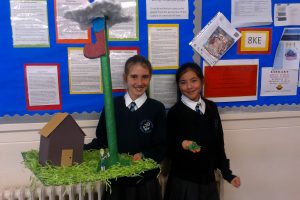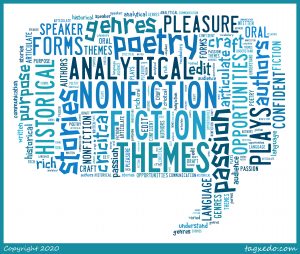English
Our vision is that all pupils will have the confidence to be fluent and effective communicators in reading, writing and oracy. Pupils will have rich, complex conceptual knowledge; emotional understanding and empathy; an understanding of the importance of social and cultural influences on texts and expand their critical evaluations of texts to explore differing interpretations. They will have fostered a love of reading and a passion for writing and be young people who understand different requirements of language and employ a rich and varied vocabulary in their written and oral communication. Our English curriculum is about human beings expressing themselves and, trying to understand themselves and others.
Our curriculum fulfils the requirements of the NC and offers a bespoke programme of study which is challenging and broad. Progression is divided into the representation of the different types of knowledge that underpin English as an academic subject:
- Substantive Concepts (not subject-specific), for example, love, betrayal, war, chronology.
- Second Order Concepts (subject specific concepts), for example, characterisation, setting, structure, symbolism.
- Basic Content (fundamental knowledge), for example, character names, simple details.
- Subject Procedures (skills), for example, aspects of annotations, essay writing.
At Key Stage 2 (years 5&6), we aim to build on the skills developed at the first schools and do this through use of transition information and baseline assessment on entry to inform us of the starting point of each child. Throughout the year, children follow a variety of units of work, exposing them to increasingly challenging texts which develop reading skills, with a particular focus on inference and deduction which prepares the pupils for the analytical focus at Key Stage 3 (years 7&8).

The aim of Key Stage 3 English is to consolidate and build on the skills pupils acquire in Key Stage 2, whilst also preparing students for the demands of GCSE. The skills and knowledge that are fostered are cumulative, progressive and transferable throughout other subjects.

Our curriculum encompasses a diverse and rich selection of texts, from both the literary heritage and contemporary literature. In order to stimulate a passion for English the curriculum is designed around thematic units, linked to key texts and genres. The main text or genre drives the unit and we make links to other texts where we can including fiction, non-fiction and poetry. The range of texts includes whole books, short stories, poems, plays and covers a range of historical genres, historical periods, forms and authors. Pupils are encouraged to read widely, to read for pleasure and develop skills of analysis and critical thinking. There are multiple opportunities to write for different audiences and purposes and pupils are encouraged to develop the craft of writing through drafting and editing work.
By the end of Key Stage 3, pupils will have the confidence to be fluent and effective readers and communicators. They develop an understanding of the importance of social and cultural influences on texts and expand their critical evaluations of texts and consider differing interpretations. Pupils will foster a love of reading and a passion for writing. They will be young people who understand different requirements of language and employ a rich vocabulary in their written and oral communications.

CURRICULUM MAPS
Transition work for High School
We work closely with the local high schools and ensure that the curriculum prepares students for the rigours of Key Stage 3 and 4.
How is spelling taught at Valley Gardens?
The English language contains over a million words and has been affected by thousands of years of history. The National Curriculum reminds us that:” Most people read words more accurately than they spell them.” At Valley Gardens, we teach spelling with a strong foundation in phonics with a focus on empowering children to become lifelong spellers.
Spelling with Emile
We subscribe to an online resource and app called “Learn with Emile”. The Emile spelling scheme fully aligns with the National Curriculum for Key Stage 2; this means your child has FREE access to this resource and we would like you to encourage regular use at home.
Here’s what you need to know:
- IT’S FREE. The app can be downloaded for nearly all devices (including mobiles) from here: https://emile-education.com/app-downloads/learn-with-emile-app-download/ or from the Microsoft, Google Play or Apple Stores – it’s called “Learn with Emile”. A web version can also be accessed using a browser: https://web.emile-education.com.
- HELPS STUDENTS. The resource has been shown to have significant improvements in learning outcomes when used regularly. Please help encourage your child to use it 10 minutes a week.
- STUDENTS ENJOY PLAYING THE GAMES. The resource works by students being assessed and then allocated games and activities at their level. Students really enjoying playing the games, getting live feedback and making progress.
- MULTIPLAYER GAMES. Students can compete in groups or as a class at their own difficulty level. The use of competition and multiplayer games is a great way to encourage engagement. As the students will be competing at their level, they will be able to beat their competition irrespective of level, so there’s no reason for anyone to become discouraged.
- TAMAGOTCHIE. Every student gets a Tamagotchi to look after and customise using points and coins earned by improving their level and playing games.
- PARENTAL SUPPORT IS CRITICAL. For children to be fully motivated and for them to get the best out of the practise, they need an adult’s help. Without a Parent’s praise and reminders, without sitting down together or checking their work, practising will not feel important.
Your child’s username and password have been shared in class.

